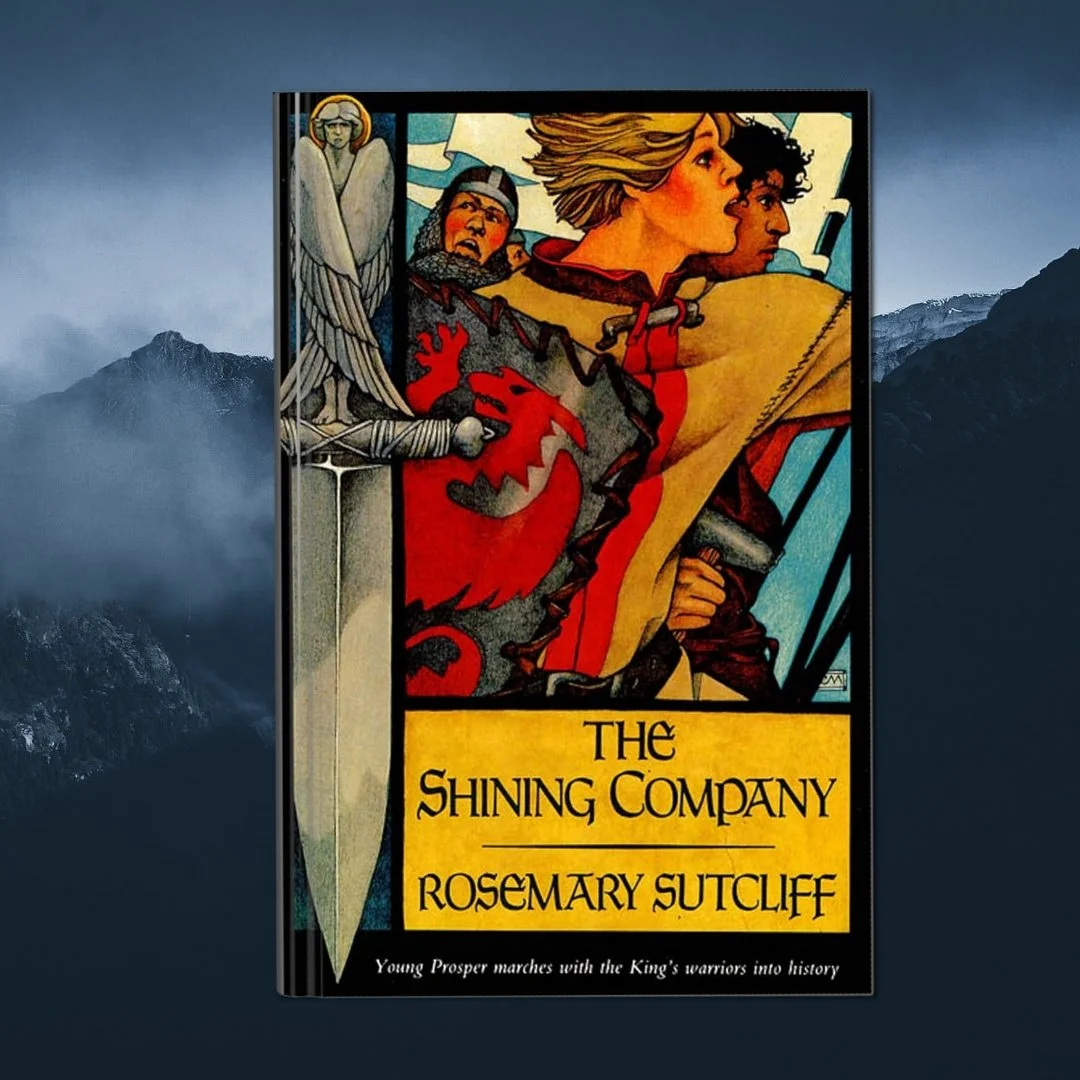Book Review: “The Shining Company” by Rosemary Sutcliff
The Shining Company is a book that really captures a lot of the reasons I love Rosemary Sutcliff’s storytelling.
Like so many of Sutcliff’s other books, it takes place at a time of transition in history, when ways of life and groups of people are slipping away or be threatened. Set at the end of the sixth century, The Shining Company is set during a period of substantial change in England.
The Roman military left Britain around 410 AD, and while it left many of the buildings, lifestyles, and customs that it had brought, they were on borrowed time. Much of Britain’s Roman lifestyles were built on cheap trade, with luxury goods and small items being brought in for almost nothing on the back of the logistical machine that powered the Roman army. With that cheap trade gone, and the safety and structure provided by the legions gone as well, the Britons were easy pickings for the many ‘barbarians’ that threatened them.
Sutcliff tells the tale of this first stage in books like The Lantern Bearers, where local Britons try to ally and work with Angles and Saxons against the Irish and the Picts, only to find themselves at the mercy of the Saxons. In Sutcliff’s retelling, the tide of Anglo-Saxons was held at bay for a little while by Arthur, but by the time of The Shining Company, Arthur is gone, and the Britons are weakening.
Whatever really happened during sixth century, the Anglo-Saxons were establishing themselves in England by 600 AD, and the Britons were drifting toward irrelevance, and the battle of Catraeth was one of the last attempts by the Britons to hold onto their lands.
We have precious few sources for these times, and our primary source for the battle is the poem Y Gododdin, one of the oldest pieces of Welsh poetry that we possess.
Sutcliff brings this time and people to life in The Shining Company. The book is written in the first person, as an account by one of the survivors who is listening to Aneirin, the author of Y Gododdin. Part of the narrator’s reason for telling the story here is to fill in what Aneirin has left out, specifically the part played by everyone who wasn’t royalty or famous.
So Sutcliff tells a tale of a time few of us have heard of, and in a way that brings to life the characters that are often left out of the epic poems. Sutcliff’s eye for detail and ability to immerse the reader into the setting remains, in my opinion, unmatched here.
Sutcliff also has the ability to see both the heroic and the craven in a story without allowing one to disguise the other. Heroism and sacrifice often exist with cowardice and selfishness in the same tales, and forgetting one or the other distorts what we might be able to learn from the past.
In summary, this is another instance where Sutcliff brings the reader back in time to a place and moment we can only glimpse through sparse historical sources, and she shows us what it was like to walk alongside people like and unlike ourselves, in places that history has almost forgotten.
If this book sounds interesting to you, and you’d like to help support me, you can check it out via the amazon affiliate link below. It’s no extra cost to you, and I get a small advertising fee from Amazon for helping you find a new book.

